VIPsight - February 2013
COMPANIES
Shareholders rebel against Cromme
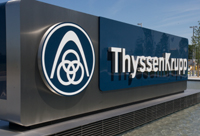 The Annual General Meeting of ThyssenKrupp has, despite the debates about billions in losses, bad investments in America and compliance failures, given discharge to all Management Board and Supervisory Board members for the business year 2011/12 (30 September). In his speech, Cromme acknowledged errors: “If you ask me if we as a Supervisory Board could in the past have done some things better, then I will honestly say: Yes, we trusted too long, we could have acted sooner.” The discharge to the Supervisory Board chief turned out weak: Cromme received only 69.16 per cent approval. The nine-and-a-half-hour Siemens meeting was also dominated by frustration about the course of business, harsh criticism of the Supervisory Board chief and anger over the remuneration of the Board. So that the almost 70-year-old could be re-elected as chair, the statute, which had originally planned an age limit, was amended. Cromme received only 90.7 percent for re-election and so ended up below most of his supervisory colleagues. As at ThyssenKrupp he had to meet allegations that he had not done justice to his role as chief overseer.
The Annual General Meeting of ThyssenKrupp has, despite the debates about billions in losses, bad investments in America and compliance failures, given discharge to all Management Board and Supervisory Board members for the business year 2011/12 (30 September). In his speech, Cromme acknowledged errors: “If you ask me if we as a Supervisory Board could in the past have done some things better, then I will honestly say: Yes, we trusted too long, we could have acted sooner.” The discharge to the Supervisory Board chief turned out weak: Cromme received only 69.16 per cent approval. The nine-and-a-half-hour Siemens meeting was also dominated by frustration about the course of business, harsh criticism of the Supervisory Board chief and anger over the remuneration of the Board. So that the almost 70-year-old could be re-elected as chair, the statute, which had originally planned an age limit, was amended. Cromme received only 90.7 percent for re-election and so ended up below most of his supervisory colleagues. As at ThyssenKrupp he had to meet allegations that he had not done justice to his role as chief overseer.
The German Mittelstand
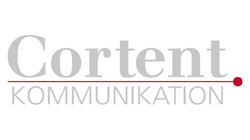
Cortent article for VIPsight.eu
“The German middle class is well prepared for 2013”
The German economy got off with a black eye again last year. Initial calculations by the Federal Statistical Office in January show gross domestic product up 0.7 per cent in 2012. However, the economic slump has not yet bottomed out. For instead of the previously announced growth of one per cent in 2013, the federal government now only expects 0.4 per cent growth for the current year.
This is not good news for domestic companies. And certainly not for the many SMEs, which are said to have economic disadvantages compared to large, global corporations particularly in economic downturns. The lack of internationalization and rather thin capitalization on average are seen as evidence for this theory. But is that really so?
Here is a view of the business landscape in Germany. As defined by the Institute for Small Business Research in Bonn, small and medium enterprises (SMEs) make up 99.6 per cent of companies in Germany. They generate nearly 37 per cent of taxable turnover and employ at least 60 per cent of all social-insurance contributors. In addition, these figures show that the bulk of sales comes from only a few large corporations. In other words, the decisions of a small number of top managers significantly influence the development of the German economy.
At least in terms of international business, German heavy industry is very well placed. Not without reason, Germany is one of the leading export nations worldwide. The flagship automobile and engineering industries are the driving forces. For a typical SME, however, high export quotas are almost impossible to achieve. It would be too costly to build structures for a powerful international business, or to set up their own foreign branches. Added to this is the financial risk of potential failures. SMEs benefit instead from indirect export. Thus, although medium automotive suppliers predominantly deliver to domestic automobile multinationals, they will benefit, even without their own international business, from their customers’ high export propensity. Therefore is not only crucial which customers are sold to directly, but also which markets the products are ultimately intended for.
It is thus not surprising that despite the rather subdued economic outlook the mood among German SMEs is not at all bleak. In a survey by the Association of Medium-Sized Enterprises (BVMW) 28 per cent of SMEs surveyed expect that their financial situation will improve in the first half of 2013. 53 per cent expect at least steady development. After the crisis years of 2009 and 2010, the German SME sector is well prepared. Those active in promising niches may well happen on a boom in 2013.
VIPsight will in future bring the SME sector in Germany too into the spotlight for readers. Especially companies that are not always in the focus of public interest often deserve a closer look. As regards the capital market too, these companies are very interesting, as in their industrial variety, technological orientation and strategic approach they offer a broad picture of the German economy. Of course, we also want to look beyond the borders of Germany and illuminate issues that face small businesses in other European countries.
Buhlmann's Corner
A few years ago people likened the idea of publishing individualized executive compensation to the end of Christianity – even though, in Caritas in Veritate, the Holy See itself addressed the responsibilities of the owner.
 Now, little by little, the German legislature wants to set the level of executive compensation. So good and bad / large and small tasks / daily operations and strategy are to be made codifiable, absolute intelligence poured into Articles and put into international competition? Yet every Tom, Dick and Harry, with or without a PhD, knows from experience that responsibility cannot be defined legally! The fact that the same duties are rewarded differently is shown by the classic example of Gerhard Cromme with his remuneration at Siemens and at ThyssenKrupp – which is not based on the fact that there he was given discharge by only 15% of all free shareholders (excluding foundation and friends).
Now, little by little, the German legislature wants to set the level of executive compensation. So good and bad / large and small tasks / daily operations and strategy are to be made codifiable, absolute intelligence poured into Articles and put into international competition? Yet every Tom, Dick and Harry, with or without a PhD, knows from experience that responsibility cannot be defined legally! The fact that the same duties are rewarded differently is shown by the classic example of Gerhard Cromme with his remuneration at Siemens and at ThyssenKrupp – which is not based on the fact that there he was given discharge by only 15% of all free shareholders (excluding foundation and friends).
It is clear to every stakeholder that €10 million a year (in these times!) is too much; and yet even more is paid – in addition to a pension and other benefits in kind. It is absurd, then, if the discussion, as at Volkswagen, is “complicated by the election in Lower Saxony”. Didn’t the SPD win the elections? Would any discussion of compensation and investments thus be “complicated” in the same way by elections, weddings or flu attacks?
How absurd laws are instead of responsible (!) balancing of each individual case is also demonstrated by the bonus world focused around banks, because the annual bonus was out of control, and because on the one hand a way was sought to let that keep going, and on the other hand every Tom, Dick and Harry was to be reassured – so they developed the concept of an annual bonus to stretch/distribute over several years. Purely mathematically, however, a wave then builds up when the recipients consistently manage well – so the problem has been only postponed, not put behind us.
So today we complain over bankers' bonuses, which even in difficult times are higher than would correspond to the annual result. Perhaps the only reason why we are so blind is because the bonus is not broken up into its components: annual bonus, last year’s bonus, previous year’s bonus. Of course, in deteriorating times, then the mathematically correct bonus for the financial result is ethically excessive! So it is with the Deutsche Bank: only what is still missing here is social acceptability, and the basis for the bonus calculation.
No bonus can be socially acceptable (in terms of overall views in the workforce) if it goes up and up while the foot soldiers are left to starve - which can only mean that the bonus recipient one day moves on, because the foot soldiers won’t march any more. So far the basis for calculation includes the positive effect from transactions (which is proper) while the financial consequences of liability and damages are socialized among the owners. It cannot and must not be that the billions in fines and the trials find no purchase on the bonuses of those responsible. Whenever consequences are disconnected from actions, bubbles and distortions will result – again, and even more. Still, we can hope that Jürgen Hambrecht, the successful ex-head of BASF, and his four fellow commissioners set about fixing this shortcoming that “earnings are bonus-relevant, but expenditure is a shareholder matter.”
Clearly, the German Corporate Governance Code Commission is blind in that eye: after all its president, Klaus-Peter Müller, was responsible as Chairperson for the purchase of Eurohypo – bought back then in order to protect the bank, or rather the management, from takeovers, now as a bad bank it hangs around the Bank’s neck like an albatross.
And there we have it again: the State is heavily involved in the Commerzbank. It, the State, the legislature (!) does not get the problem in a particular case under control –but has the audacity to say it can fix it in statutory form for all its subjects? No, the responsibility is the shareholders’. They have to face up to the task and act. When are retirees finally going to ask their pension funds, fund clients their managers, the insured their life insurers, the self-employed their pension schemes, what they’re up to?
It is extremely second-rate when the pitiful Martin Winterkorn laments in Davos that he earns too much – he could take it and distribute it to his employees, customers and shareholders (as a gift, to save tax). The volume is big enough by now.
ACTIONS CORNER
 After an EU ruling, Salzgitter must now pay back millions of state aid. The Luxembourg EU court on 22 January dismissed the steel and technology company’s action against a European Commission decision. The judgment can be appealed, according to a court spokesman. Predecessors and subsidiaries of the steel company had received aid in the eighties and nineties, based on aid to border regions. The judges did not mention an amount, but earlier indications are in the double-digit millions.
After an EU ruling, Salzgitter must now pay back millions of state aid. The Luxembourg EU court on 22 January dismissed the steel and technology company’s action against a European Commission decision. The judgment can be appealed, according to a court spokesman. Predecessors and subsidiaries of the steel company had received aid in the eighties and nineties, based on aid to border regions. The judges did not mention an amount, but earlier indications are in the double-digit millions.
 A steel cartel around ThyssenKrupp is said to have cheated municipal transport companies throughout Germany in more than 100 cases. The cartel is suspected of having in the last three decades, along with other suppliers, secretly agreed prices for tracks and switches, so relieving Deutsche Bahn and many municipal transport companies of a lot of money. The state-owned company had filed a lawsuit against ThyssenKrupp and other rail manufacturers for illegal price fixing at the end of 2012, and is claiming damages in the millions.
A steel cartel around ThyssenKrupp is said to have cheated municipal transport companies throughout Germany in more than 100 cases. The cartel is suspected of having in the last three decades, along with other suppliers, secretly agreed prices for tracks and switches, so relieving Deutsche Bahn and many municipal transport companies of a lot of money. The state-owned company had filed a lawsuit against ThyssenKrupp and other rail manufacturers for illegal price fixing at the end of 2012, and is claiming damages in the millions.
AGM Dates
| Company | Event | Date | Time | Place | Address | Published on |
| DAX | ||||||
| Infineon Technologies AG | ord. AGM | 28/02/2013 | 10:00 | 81829 München | Am Messesee 6, im ICM (Internationales Congress Center München), Messegelände | 14/01/2013 |
| The Agenda for the ordinary AGM of Infineon Technologies AG starts with the usual items, like presentation of annual accounts and discharge to the company bodies. Infineon Technologies AG earned balance-sheet profits of €129.64m last business year. Of the profits, €128.92m is to be paid out as dividend and €0.72m allocated to other reserves. Approval of the system of executive remuneration is to be decided. The Company is to be authorized to purchase its own shares and to use them. As part of the acquisition of own shares the authorization to use derivatives is to be decided. The existing Conditional Capital 2002 is to be cancelled. | ||||||
| MDAX | ||||||
| TUI AG | ord. AGM | 13/02/2013 | 10:30 | 30175 Hannover | Theodor-Heuss-Platz 1, in dem Hannover Congress Centrum | 04/01/2013 |
| The Agenda for the ordinary AGM of TUI AG starts with the usual items, like presentation of annual accounts and discharge to the company bodies. The profits of €116.62m are to be fully carried forward to a new account. The Authorized Capital decided on 07 May 2008 under Item 7 is to be cancelled. A new Authorized Capital for the issue of employee shares in the amount of €10 million is to be created, with the option of excluding subscription rights The Authorized Capital decided on 07 May 2008 under Item 8 is also to be cancelled. A new Authorized Capital in the amount of €64 million is to be created, also with the option of excluding subscription rights The company is to be authorized to purchase and to use its own shares, with the exclusion of subscription and tender rights of shareholders, including the authorization to withdraw shares, reducing the share capital.. Supervisory Board remuneration is to be reregulated. Elections to the Supervisory Board are to be held. | ||||||
| Aurubis AG | ord. AGM | 28/02/2013 | 10:00 | 20355 Hamburg | Marseiller Straße 2 (Nähe Dammtorbahnhof), im CCH-Congress Center Hamburg | 15/01/2013 |
| The Agenda for the ordinary AGM of Aurubis AG starts with the usual items, like presentation of annual accounts and discharge to the company bodies. Aurubis AG earned balance-sheet profits of €112.68m last business year. Of the profits, €60.89m is to be paid out as dividend and €51.98 carried forward to a new account Elections to the Supervisory Board are to be held. The company is to be authorized to purchase and to use its own shares, with the exclusion of subscription and tender rights of shareholders. | ||||||
| Carl Zeiss Meditec AG | ord. AGM | 05.36.33 | 10:00 | 99423 Weimar | UNESCO-Platz 1, im congress centrum neue weimarhalle | 22.34.33 |
| The Agenda for the ordinary AGM of Carl Zeiss Meditec AG starts with the usual items, like presentation of annual accounts and discharge to the company bodies. Carl Zeiss Medite AG earned balance-sheet profits of €63.85m last business year. Of the profits, €32.52m is to be paid out as dividend and €3133 carried forward to a new account. | ||||||
Politics
EU Parliament insists on limits on bonuses
 In the European Parliament, willingness to give greater leeway to shareholder meetings in approving high bonuses for bank managers than previously planned is growing. Under discussion is a ratio of bonuses to fixed salary of one to five. This proposal was tabled by the Cypriot EU Presidency in the negotiations on the new EU Capital Requirements Directive (CRD IV) for banks. Without shareholder approval, the entire bonus cannot be more than three times higher than the fixed salary; the total bonus must also cover payments for later years. The instant bonus payment in cash or in securities should according to Cyprus not exceed the fixed salary. So far, the EU parliament had advocated that at most twice the base salary may be paid. Christian Democrats and Liberals want to keep the position that normally the bonus may not exceed the fixed salary, it was said.
In the European Parliament, willingness to give greater leeway to shareholder meetings in approving high bonuses for bank managers than previously planned is growing. Under discussion is a ratio of bonuses to fixed salary of one to five. This proposal was tabled by the Cypriot EU Presidency in the negotiations on the new EU Capital Requirements Directive (CRD IV) for banks. Without shareholder approval, the entire bonus cannot be more than three times higher than the fixed salary; the total bonus must also cover payments for later years. The instant bonus payment in cash or in securities should according to Cyprus not exceed the fixed salary. So far, the EU parliament had advocated that at most twice the base salary may be paid. Christian Democrats and Liberals want to keep the position that normally the bonus may not exceed the fixed salary, it was said.
People
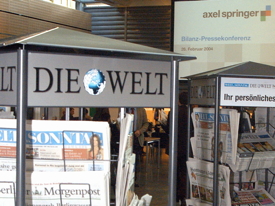 Rudolf Knepper has been appointed to the Supervisory Board of Axel Springer. Thus, the nine-member committee is complete again, following the resignation of Michael Lewis on 30 September 2012, the media company announced on 9 January. The former Technical and Human Resources Director has spent almost 40 years at Springer (Bild, Hamburger Abendblatt), most recently as executive vice president.
Rudolf Knepper has been appointed to the Supervisory Board of Axel Springer. Thus, the nine-member committee is complete again, following the resignation of Michael Lewis on 30 September 2012, the media company announced on 9 January. The former Technical and Human Resources Director has spent almost 40 years at Springer (Bild, Hamburger Abendblatt), most recently as executive vice president.
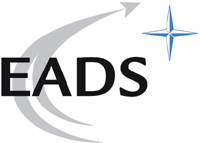 Manfred Bischoff (70) and Philippe Camus are to join the European Aeronautic Defence and Space Company (EADS) Board in its upcoming renewal, to advise and at the same time monitor EADS CEO Thomas Enders. Besides Bischoff, former BDI President Hans-Peter Keitel is to move to the EADS board. As representatives of the German government they would replace Daimler board members Bodo Uebber and Wilfried Porth. The French government apparently wants to appoint Anne Lauvergeon to head the company’s Board. The former head of nuclear company Areva possesses the necessary qualities and is François Hollande’s favourite candidate, it was said. Supposedly, the governments of Germany and France, in consultation with the CEO, have already signalled their approval. The German government initially wanted to take no position, however. On the French side, Lagardère representatives Arnaud Lagardère and Dominique D’Hinnin would make room for the 64-year-old Camus and former Saint-Gobain CEO Jean-Louis Beffa . The appointment of the new Board was necessary after Germany gradually bought up shares from Daimler and a consortium of banks through the Kreditanstalt für Wiederaufbau so as to enter the company directly for the first time, and because as well as the Stuttgart carmaker Lagardère also announced its withdrawal from the Airbus parent. Berlin wants direct entry to EADS to secure the balance of power and prevent a threatening French predominance. After a hard struggle Germany and France had agreed at the end of 2012 to a new shareholding structure at EADS. The State major shareholders of the Airbus parent will in future hold twelve per cent each. Unlike a German Supervisory Board, the EADS body shares in location and production decisions and decides on arms deals.
Manfred Bischoff (70) and Philippe Camus are to join the European Aeronautic Defence and Space Company (EADS) Board in its upcoming renewal, to advise and at the same time monitor EADS CEO Thomas Enders. Besides Bischoff, former BDI President Hans-Peter Keitel is to move to the EADS board. As representatives of the German government they would replace Daimler board members Bodo Uebber and Wilfried Porth. The French government apparently wants to appoint Anne Lauvergeon to head the company’s Board. The former head of nuclear company Areva possesses the necessary qualities and is François Hollande’s favourite candidate, it was said. Supposedly, the governments of Germany and France, in consultation with the CEO, have already signalled their approval. The German government initially wanted to take no position, however. On the French side, Lagardère representatives Arnaud Lagardère and Dominique D’Hinnin would make room for the 64-year-old Camus and former Saint-Gobain CEO Jean-Louis Beffa . The appointment of the new Board was necessary after Germany gradually bought up shares from Daimler and a consortium of banks through the Kreditanstalt für Wiederaufbau so as to enter the company directly for the first time, and because as well as the Stuttgart carmaker Lagardère also announced its withdrawal from the Airbus parent. Berlin wants direct entry to EADS to secure the balance of power and prevent a threatening French predominance. After a hard struggle Germany and France had agreed at the end of 2012 to a new shareholding structure at EADS. The State major shareholders of the Airbus parent will in future hold twelve per cent each. Unlike a German Supervisory Board, the EADS body shares in location and production decisions and decides on arms deals.
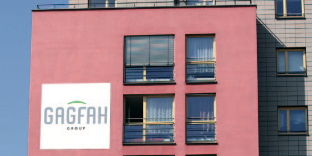 Robert Ian Kauffman has resigned his directorship at GAGFAH with effect from 15 January. The co-founder of the Fortress Investment Group, which holds the majority of the real-estate group, is also retiring from the investment company. As new member the majority shareholder is sending Jonathan Ashley to the Board of the real-estate Group, listed in Luxembourg.
Robert Ian Kauffman has resigned his directorship at GAGFAH with effect from 15 January. The co-founder of the Fortress Investment Group, which holds the majority of the real-estate group, is also retiring from the investment company. As new member the majority shareholder is sending Jonathan Ashley to the Board of the real-estate Group, listed in Luxembourg.
On 1 February Karsten Lork became the fourth board member of Klöckner & Co. The Supervisory Board of the metal handler has appointed the business graduate to the Executive Board with responsibility for Europe and Asia, which is currently provisionally managed by Gisbert Rühl. Ulrich Becker had left in autumn due to differing views on the future direction of the business.
Harald Schrimpf was appointed Chief Executive Officer on 1 July, PSI announced. In addition, the 48-year-old’s contract was extended for a further five years until 30 June 2018. On the same day Harald Fuchs also joined the Board of the Berlin software company. He has been Head of Finance and Controlling in PSI AG’s Electrical Energy business unit since 2011. Armin Stein will leave the TecDAX-listed company at the end of his contract on 30 June.
Bernd Schlobohm surprisingly announced on 22 January he did not want to prolong his expiring contract at QSC beyond the AGM scheduled for 29 May. He still wants to actively help shape the strategic development of the Cologne-based IT and telecommunications company and is aiming for a direct move to the Supervisory Board. Jürgen Hermann will take over Group Management.
Bertin Eichler is to vacate his position at ThyssenKrupp at the end of his current term in autumn and not run for the Supervisory Board again. The Deputy Chairman need not worry about his leadership position at IG Metall because of his first-class flights at the expense of the DAX Group, however. Eichler also announced he would repay the difference between the cost of the Business Class most used by business travellers and First Class.
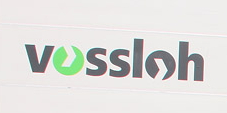 Kay Mayland has been appointed as a member of the Supervisory Board of Vossloh by decision of the Iserlohn District Court dated 28 December 2012. The doctor of engineering succeeds Jürgen Blume, who resigned with effect from 31 August 2012. Between 2004 and 2011 Mayland was CEO of Düsseldorf firm SMS Siemag, a company for metallurgical and rolling-mill technology.
Kay Mayland has been appointed as a member of the Supervisory Board of Vossloh by decision of the Iserlohn District Court dated 28 December 2012. The doctor of engineering succeeds Jürgen Blume, who resigned with effect from 31 August 2012. Between 2004 and 2011 Mayland was CEO of Düsseldorf firm SMS Siemag, a company for metallurgical and rolling-mill technology.
On 1 January Wincor Nixdorf’s Supervisory Board appointed Jens Bohlen to the board, it was announced. The 50-year-old, at the ATM manufacturer since 2006 and currently responsible for the service business, will take over the banking business, provisionally handled by Eckard Heidloff since the departure of Stefan Auerbach in February 2012. Olaf Heyden is also moving to Wincor Nixdorf in Paderborn, although his entry date is not yet fixed. As part of the increase of Board staff Jürgen Wunram has since the beginning of the year been Deputy Vice Chairman. At the AGM on 21 January Dieblius Alexander was elected Supervisory Board Chairman, succeeding Karl-Heinz Stiller.
Campus
Only slight increase in percentage of women
 Despite slight progress in 2012, the proportion of women on German management and supervisory boards is still low. This is the finding of the 2013 Women Managers Barometer of the German Institute for Economic Research. However, the DAX companies have risen slightly. Only four per cent of board positions in the 200 largest companies and the 100 largest banks in Germany at the end of 2012 were filled by women, which is an increase of one percentage point over the previous year. For insurance companies, the share was only slightly higher, at 5.7 per cent. All told, the increases were too small, in too few companies and based on too low baseline values to change anything in the overwhelming male domination in management and supervisory boards, said research director Elke Holst. Overall, the culture for women in leadership positions must continue to improve, the business researchers demand.
Despite slight progress in 2012, the proportion of women on German management and supervisory boards is still low. This is the finding of the 2013 Women Managers Barometer of the German Institute for Economic Research. However, the DAX companies have risen slightly. Only four per cent of board positions in the 200 largest companies and the 100 largest banks in Germany at the end of 2012 were filled by women, which is an increase of one percentage point over the previous year. For insurance companies, the share was only slightly higher, at 5.7 per cent. All told, the increases were too small, in too few companies and based on too low baseline values to change anything in the overwhelming male domination in management and supervisory boards, said research director Elke Holst. Overall, the culture for women in leadership positions must continue to improve, the business researchers demand.
Capital News
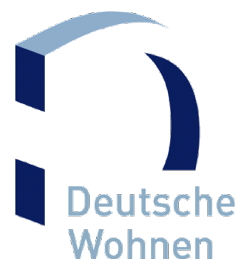 Deutsche Wohnen has collected €195.1 million gross from institutional investors with a multiply oversubscribed capital increase. Thus, the real estate group has increased its share capital by 14,614,285 shares, from €146,142,858 to €160,757,143. The funds will be used for further acquisitions. The proceeds from the last two capital increases in November 2011 and June 2012 in the amount of approximately 620 million euros were almost entirely invested within a year in acquisitions in Dusseldorf, the BauBeCon inventories, acquisitions in the Berlin area and a further portfolio of approximately 5,100 residential units.
Deutsche Wohnen has collected €195.1 million gross from institutional investors with a multiply oversubscribed capital increase. Thus, the real estate group has increased its share capital by 14,614,285 shares, from €146,142,858 to €160,757,143. The funds will be used for further acquisitions. The proceeds from the last two capital increases in November 2011 and June 2012 in the amount of approximately 620 million euros were almost entirely invested within a year in acquisitions in Dusseldorf, the BauBeCon inventories, acquisitions in the Berlin area and a further portfolio of approximately 5,100 residential units.
Director's Dealings
| Company | Person | Function | Buy / Sell | Total value in Euro | Number of shares | Date |
| TAG Immobilien AG | Ristow, Dr. Lutz R. | AR-Chef | B | 18.932 | 2104 | 22.01.2013 |
| TAG Immobilien AG | Ristow, Dr. Lutz R. | AR-Chef | B | 30.488 | 3210 | 04.01.2013 |
| Henkel AG & Co. KGaA | Henkel, Christoph | B | 165 | 55 | 25.01.2013 | |
| Siemens AG | Kaeser, Joe | VR | B | 25.514 | 316 | 24.01.2013 |
| Siemens AG | Kaeser, Joe | VR | B | 55.154 | 675 | 29.01.2013 |
| K+S AG | Heidenreich, Heide | B | 16.710 | 500 | 07.01.2013 | |
| SGL CARBON SE | Köhler, Robert J. | VR-Chef | S | 218.084 | 6410 | 10.01.2013 |
| SGL CARBON SE | Köhler, Robert J. | VR-Chef | S | 280.294 | 8387 | 11.01.2013 |
| ElringKlinger AG | Wolf, Dr. Stefan | VR-Chef | B | 26.050 | 1000 | 29.01.2013 |
| Software AG | Geidt, Heinz Otto | AR | B | 8.700 | 300 | 29.01.2013 |
| Carl Zeiss Meditec AG | Guthoff, Dr. Markus | AR-Chef | S | 22.458 | 950 | 18.01.2013 |
| Carl Zeiss Meditec AG | Heinrich, Jörg | AR | S | 4.070 | 174 | 22.01.2013 |
| Carl Zeiss Meditec AG | Kaschke, Dr. Michael | AR-Chef | S | 47.140 | 2000 | 18.01.2013 |
| Carl Zeiss Meditec AG | Kaschke, Sylivia | S | 46.920 | 2000 | 18.01.2013 | |
| RATIONAL AG | KuGra GmbH & Co.KG | B | 5.014 | 23 | 07.01.2013 |
VIPsight Shareholders
in January
VIPsight Shareholder ID <click here>















